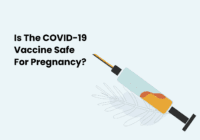Making the decision to try to conceive is an exciting time for any family. As a woman trying to get pregnant, your journey to health should begin before you’re even pregnant. Incorporating specific vitamins and nutrients into your diet can have an exceptional effect on your body, including boosting your fertility and minimizing your risk of birth defects once you do conceive.
Eating nutrient-dense food is an important part of a healthy fertility diet. However, there are some important vitamins and nutrients that are especially helpful during each phase of your pregnancy.
Join us on March 24th, 2021 at 4:30pm on Instagram Live where Dr. Tracy Malone, ND and our very own Dr. Tanya Williams, MD discuss fertility diets and the best vitamins and nutrients you need to be incorporating into your pregnancy meal plans.
View this post on Instagram
The way you eat can make a big difference when you’re trying to conceive. Changing your pre-pregnancy diet prepares your body for conceiving. Certain fertility foods can increase your chances of getting pregnant and improve your reproductive health. While pregnant, a well-balanced fertility diet can assist with your baby’s development in the womb and can even help with your child’s health in the future. Not to mention, eating better means living better and feeling healthier all around.
Whether you’re just starting to think about building your family or are actively trying to get pregnant and eagerly anticipating that positive pregnancy test, you should think about your diet as an important part of your fertility journey.
Your pre-pregnancy diet plan should include these nutrients
Calcium
Acquire calcium through dairy products and leafy vegetables. Calcium helps your reproductive system to function at its optimal capacity while helping you conceive quicker.
Fiber
Don’t forget your fiber! Beans, legumes, fruits, and vegetables are all rich in fiber, but you can substitute with Metamucil. A diet that contains more fiber will lower your risk of developing gestational diabetes.
Omega-3 fatty acids
Get your brain working in overdrive, induce ovulation, and increase blood flow to reproductive organs with omega-3 fatty acids. Salmon, walnuts, and chia seeds are all excellent sources of this nutrient.
Folic acid
Amp up your folic acid and folate intake through leafy greens, beans, and nuts. A healthy dose of folic acid prevents birth defects and health problems in your baby.
Iron
Lean meats and spinach are both rich in iron. An iron-rich diet will assist with delivering a healthy dose of oxygen to your baby.
Here are five fertility superfoods you need
Fruits and Vegetables
Fruits and vegetables are something that everyone should be eating plenty of, but women that are trying to get pregnant should make a special effort to get their recommended servings in. They pack in dozens of nutrients including vitamin A, vitamin C, antioxidants, magnesium, fiber, and potassium.
We recommend five servings of vegetables per day, three of which should be leafy greens, and at least another three daily servings of fruits such as bananas, oranges, and berries. Dark green, leafy vegetables such as spinach, kale, and other salad greens are rich in vitamins A, C, and K as well as fiber, folate, iron, and calcium.
Omega-3 Rich Seafood
Salmon isn’t just a brain food – it’s also a no-brainer when it comes to your fertility diet. Some prenatal vitamins contain healthy concentrations of omega-3 fatty acids because studies show that omega-3 fatty acids help in the regulation of hormones that induce ovulation, which in turn boosts your fertility and increases your chances of pregnancy. In addition, Omega-3 fatty acids have been shown to be important in fetal brain development once you are pregnant.
Omega-3 rich seafood includes salmon, anchovies, and herring. The next time you’re looking for a protein source to round out your dinner, consider adding salmon instead of red meat, which contains saturated fats. Salmon is high in protein and potassium, so it’ll keep you full for longer while adding valuable nutrients to your diet.
Whole Grains
As you’re on your journey to trying to conceive, you’ll want to pack your diet full of fiber and carbohydrates that are slowly digested as they will keep you full longer. Furthermore, a diet that consists of a healthy amount of fibre can actually lower your chances of getting gestational diabetes.
Whole grains that you can incorporate into your diet include oats, quinoa, and multigrain breads. Fortified breakfast cereals also contain a healthy dose of iron which will help transport oxygen throughout your body to improve circulation for both you and your baby-to-be.
Nuts
A great snack with plenty of benefits, nuts should not be overlooked when planning out your fertility diet! Nuts such as flaxseeds and walnuts contain a hearty dose of omega-3 fatty acids, folic acid and vitamin E (which is also great for endometrial health), as well as B vitamins and protein. They’re also rich in magnesium, which helps decrease morning sickness.
Nuts are an excellent addition to smoothies and salads. They’re also great as trail mix with more fertility-boosting snacks like sunflower seeds, almonds, pumpkin seeds, and dried berries.
Yogurt
Research suggests that Greek yogurt, which includes plenty of probiotics, can enhance your chances of getting pregnant and increase semen quality in men. Yogurt is a great source of calcium and vitamin D which can improve ovulation health and bolster your immune system.
A Harvard study found that eating full-fat dairy products correlates with less ovulation problems compared to low-fat dairy products. So when choosing dairy for your fertility diet, stick with full-fat dairy instead of low-fat dairy.
Foods to avoid when trying to conceive
There are some foods that are best to avoid if you’re trying to get pregnant to increase your chances of conceiving. These include:
- High-mercury fish: This often includes tuna, mackerel, kingfish and swordfish. Fish with a high mercury content can affect your baby’s nervous system once you do conceive.
- Trans fats: Food that has a high trans fat concentration can lower fertility by causing inflammation in the body. Avoid foods such as fried foods, chips, and baked goods.
- Alcohol: Alcohol can cause infertility by depleting your body of Vitamin B. Vitamin B is an essential nutrient in improving your chances of conceiving.
- Raw animal products: Raw seafood, eggs, and meat can contain harmful bacteria that can pass through the placenta. Skip sushi and carpaccios just to be safe.
We discussed the impact of different nutrients and supplements on fertility on IGTV with our very own Dr. Tanya Williams and Dr. Tracy Malone of Conceive Health.
Lifestyle changes to make when TTC
Trying to conceive is an exciting time, but making little tweaks in your daily life can have a huge impact on your overall success in getting pregnant. Of course, once you conceive, maintaining a healthy diet throughout your pregnancy is just as important to ensure the health of your baby.
Not only will you want to make changes to your diet, but lifestyle changes are an imperative part of your fertility journey. Healthier habits like exercise and meditation and quitting bad ones like smoking and drinking all give your fertility a boost. You’ll also want to avoid things that lower your fertility or negatively impact your physical and mental health like harmful chemicals (i.e. endocrine disruptors) and stress-inducing situations.
Our team at Dr. Tanya Williams Fertility Centre can guide you through your fertility journey, all the way from diet plans to fitness routines to fertility treatments. Download our patient referral form to schedule a consultation.[/norebro_text]






